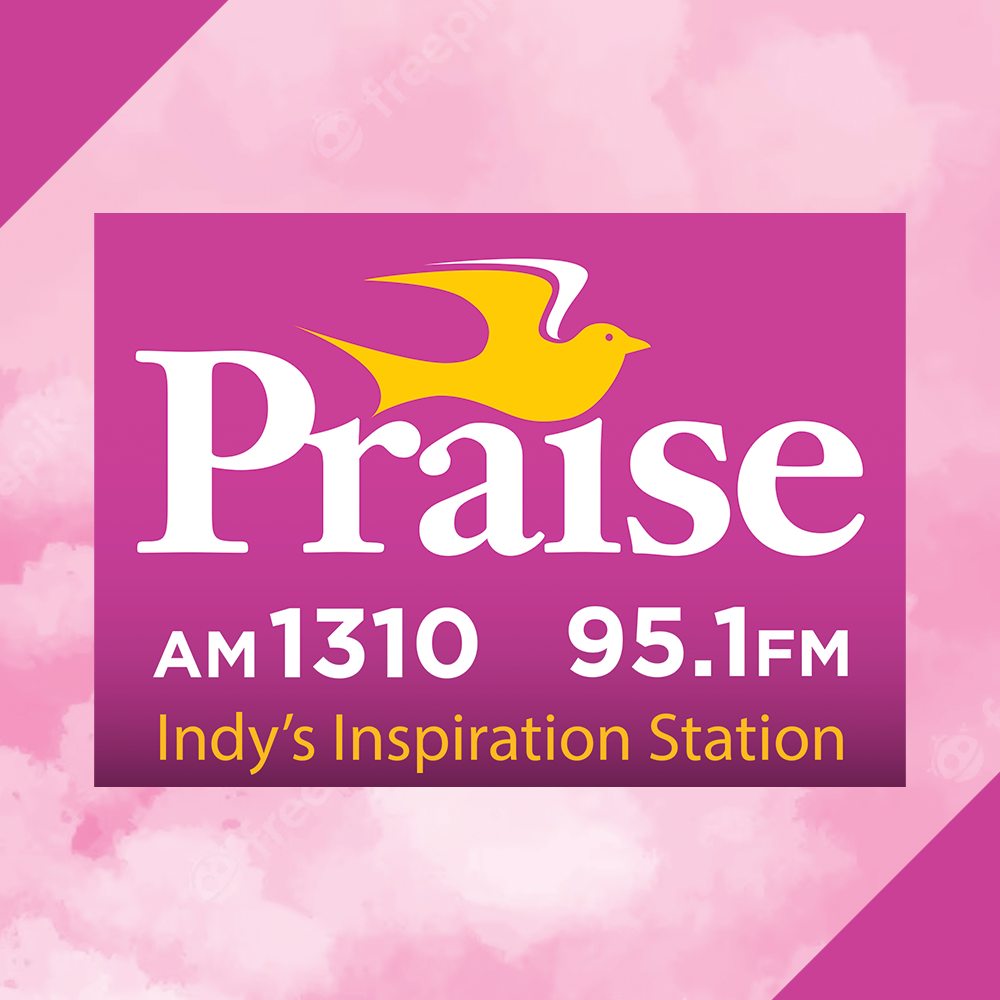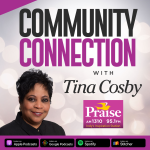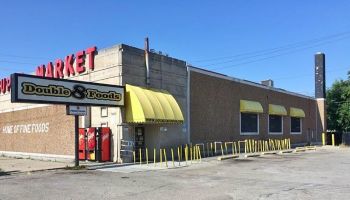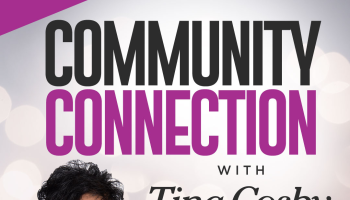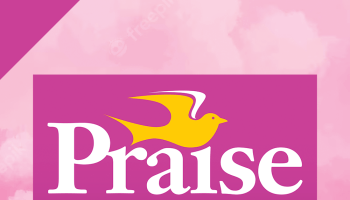URGENT UPDATE: On Saturday, July 25th, elected officials, ministers, community leaders and the public met at Flanner House to begin developing strategies to cope with the loss of the Double 8 stores. Strategies include shuttles for those without transportation to be able to do basic grocery shopping. Other options and plans are being explored. Afternoons with Amos will have details on Monday’s Program.
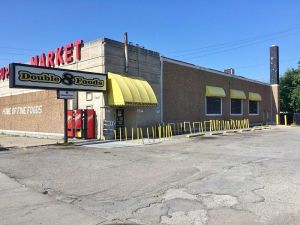
Cars Would Normally be at This Double 8 Store at 39th & Illinois
The Afternoons with Amos PODCAST for Friday, July 24, 2015. (Isaiah Kuperstein Interview Starts At 2:55 Mark On PODCAST Media Player). In an emotional, somewhat bittersweet interview, Isaiah Kuperstein, owner of Double 8 Foods, the four stores in Indianapolis northside inner city neighborhoods that closed suddenly after 58 years serving the community, explained to Afternoons with Amos listeners the reasons for the closings. Kuperstein and Amos talked about the history of the stores, which began as a group of grocery stores in northside neighborhoods opened up in 1957 by Zoltan Weisz and his wife. Weisz was an immigrant from Hungary. He survived the Nazi Holacaust and then in 1951, despite great danger and risk, he fled from Communist Hungary and emigrated to America to start his and his family’s life anew. They moved to Indianapolis and Weisz started a store he called 7 to 11. It focused on providing the neighborhoods, which were changing from white to Black with grocery services. A family owned business, Weisz prided himself on not only serving the community, but treating his employees like family. Weisz believed in equal opportunity going back to the late 1950’s. In 1959, 7 to 11 broke the color barrier when Weisz hired Clarence Ridley to manage the 29th and MLK (then Northwestern Avenue) store. That was the first time a Black was picked to manage ANY Indianapolis grocery. Over the years other Blacks were hired or promoted to management positions, including the legendary Al “The Bishop” Hobbs.
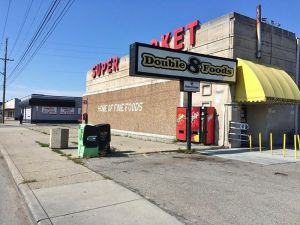
Double 8 Store at 39th & Illinois
In the interview, Kuperstein wistfully talked about the many Double 8 employees who had been with the stores for decades. Kuperstein said he’s met or meeting with every employee individually and will provide what ever help he can in helping them find new employment. Asked why he didn’t approach the City for help and assistance, Kuperman said he really didn’t think of that and thought it wouldn’t have helped. “We literally couldn’t pay our bills anymore”, Kuperstein said in response to why the four stores closed. Kuperstein lamented how difficult it was for the stores, which were family-owned, to compete against major chains like WalMart, Meijer and convenience stores like Dollar General and Family Dollar. Kuperstein explained how fragile the grocery business is. “You only make a profit of a penny or two cents on the dollar”, Kuperstein said. That’s a slim profit margin that leaves no room for error or mistakes in the grocery business. After the Kuperstein interview, listeners reacted to the Double 8 Closings and what need to happen next. Amos insisted that the City of Indianapolis and the Mayor’s office and the next Mayor must exercise strong leadership in convincing grocery retailers to step into the area and fill in the void for thousands in what is becoming the city’s largest food desert.
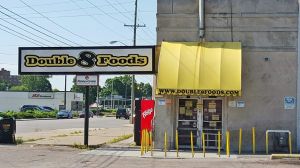
Double 8 Foods Store
After Friday’s program ended, Afternoons with Amos Host Amos Brown, received a personal e-mail from Peter Weisz, son of the store’s Founder. In it Peter Weisz said of his family, the stores and their relationship to the community: “When my father founded the company in 1957, then known as 7-to-11 Super Markets, his goal was to create a business built on service to the neighborhood. In the process, as you pointed out, 7-to-11 became a source of employment opportunity for the burgeoning African American community. Nothing provided our family with more pride and satisfaction than to see someone emerge from our company to achieve widespread success. It was this set of values that my father passed on to me as I worked by his side for 25 years, and to our family as the company transitioned into Double 8 Foods in the 21st century. Adding to the sadness that this news brings to those families who have lost their access to a long-time neighborhood grocery, is a personal grief at the demise of an enterprise which has been an integral part of our family for several generations.” Peter Weisz also thanked Afternoons with Amos. “I applaud your efforts to draw attention to the need for quality, fairly-priced food service in Indy’s urban areas and hope they are successful in filling the vacuum left by Double 8’s departure.” (Interview With Glenn Augustine Starts At 58:30 On PODCAST Media Player). Besides talking about the Double 8 Crisis, Afternoons with Amos talked a bit about Indiana’s Youth. Glenn Augustine, Interim Director of the Indiana Youth Institute, talked with Afternoons with Amos listeners about how Indiana’s Youth fared in the latest data from the 2015 KIDS COUNT Book. Each year, the Annie E. Casey Foundation looks at how kids and youth are faring in the fifty states and Washington DC. Those findings and rankings are published in the KIDS COUNT Book. Augustine talked with Amos about the areas where Indiana is improving, including reducing in low birthweight babies, youth addicted to alcohol and drugs and that teen births, babies having babies, continues to decline in the state. However, the percentage of children living in poverty or in homes where poverty is a significant factor continues to grow here in this state. For Details Click to Download the 2015 KIDS COUNT Book 2015 KIDS COUNT BOOK – FULL USA DATA INCLUDING INDIANA The Afternoons with Amos PODCAST For Friday, July 24, 2015 Runs 97 Minutes. ©2015 WTLC/Radio One. PODCAST Starts After Brief Video Ad.
